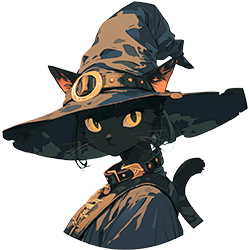What is the Psion Class in D&D 5e?
The Psion is D&D 5e's newest base class, introduced in 2025 Unearthed Arcana playtest as the first since the Artificer. Psions are Intelligence-based spellcasters who harness psychic abilities instead of traditional magic, wielding powers through mental force alone. They fill a role similar to wizards or sorcerers but distinguish themselves through telepathy, telekinesis, mind control, and other extraordinary mental feats.
Lore-wise, psionics have existed since 1st Edition but are reimagined in 5e to work alongside existing magic rules while maintaining unique twists that set them apart.
Psion Class Mechanics: Psionic Power, Disciplines, and More
Core Features
Psionic Spellcasting: Psions cast spells using Intelligence without verbal or material components (unless costly/consumed), making their magic subtle and undetectable.
Psionic Energy Dice: Starting with four d6s at 1st level, these dice fuel special abilities and scale up (d8s at 5th, d10s at 11th, d12s at 17th level). They refresh on long rests, with partial recovery on short rests at 5th level.
Telekinetic Propel: Use a bonus action and psionic die to force a Strength save; failure moves the target 5 × die result feet. The die isn't spent on successful saves.
Telepathic Connection: All Psions have 5-foot baseline telepathy. Spend a psionic die to extend range to (10 × roll) feet for minutes equal to your level.
Subtle Telekinesis: Automatic invisible Mage Hand cantrip without somatic components.
Advanced Mechanics
Psionic Disciplines (2nd level): Choose from techniques that enhance abilities using psionic dice. Examples include Biofeedback (temporary HP when casting spells) and Inerrant Aim (reroll missed attacks). Learn 2 at 2nd level, more at 10th and 17th, with ability to swap as you level.
Psionic Modes (2nd level): Activate Attack or Defense Mode as bonus actions lasting 1 minute.
- Attack Mode: Ignore psychic resistance, reroll damage dice on spells
- Defense Mode: Gain psychic resistance, add psionic die to failed mental saves
Each mode usable twice per long rest, with Psionic Surge at 7th level allowing recharge on initiative.
Additional Features: Psionic Restoration (5th), Psionic Surge (7th), Epic Boon (19th), and Enkindled Lifeforce capstone (20th).
Psion Subclasses in 5e
Metamorph – Psychically Sculpt Life and Flesh
Transform limbs into Organic Weapons (Bone Blade, Flesh Maul, etc.) using Intelligence for attacks. Extend Limbs for increased reach and casting range. Gain Extra Attack at 6th level, Quicken Healing for bonus action Cure Wounds, and Life-Bending Weapons that steal life energy to heal allies.
Psi Warper – Warp Space with the Power of Your Mind
Master of teleportation and spatial manipulation. Free Misty Step (refreshable with psionic dice), enhanced Telekinetic Propel with 30-foot teleportation option. Later abilities include Warp Space (enhanced Shatter), Teleporter Combat (cantrip after Misty Step), and Mass Teleportation for group movement.
Psykinetic – Mold Psionic Force for Creation and Destruction
Pure telekinetic force specialist. Telekinetic Techniques add effects to Telekinetic Propel (Boost, Disorient, Telekinetic Bolt). Empowered Attack Mode grants 60-foot flight and Intelligence bonus to spell damage. Rebounding Field reflects damage when using Shield, culminating in concentration-free Telekinesis affecting Gargantuan creatures.
Telepath – Master Tactics in the Landscape of the Mind
Mind-reading and mental manipulation expert. Mind Infiltrator casts undetectable Detect Thoughts. Telepathic Hub enables multi-target telepathy. Empowered Defense Mode adds +1d4 to saves (extendable to telepathic allies), Telepathic Bolstering helps allies succeed checks/attacks, and Scramble Minds enhances Confusion spell effects.
Tips for Roleplaying a Psion
Origins: Consider how powers awakened — birth talent, intense meditation, mind flayer encounter, or academy training.
Personality: Intelligence-based characters often appear calm and analytical. Telepaths might be empathetic or invasive, while Psykinetics could be confident from manipulating matter with will alone.
Psionic Etiquette: Establish your character's code about using powers on others—reading minds without permission, hiding magical use, or theatrical displays.
Party Interaction: Use telepathic links for coordination and create cinematic moments. Consider how psionics are viewed in your campaign world.
Mental Theme: Describe spells as mental distortions, psychic damage as thought-spears, and social successes as emotional influence.
Building a Psion: Feats, Races, and Background Synergies
Optimal Feats
-
Telepathic (Tasha’s Cauldron of Everything): Another thematic feat, Telepathic gives +1 to Int/Wis/Cha and 30 feet of innate telepathy, plus lets you cast Detect Thoughts once per day without a slot. While Psions do gain telepathy and can cast Detect Thoughts if they take the Telepath subclass (or learn the spell), having a constant 30-foot telepathic ability from this feat is excellent for any Psion. It essentially extends your mind-communication range without needing to use your Telepathic Connection die, and stacks with that feature when you do use it. The bonus to Int is welcome, and an extra Detect Thoughts casting can be useful if you aren’t a Telepath specialist but still want some mind-reading. Choose Telepathic if you want to emphasize the mental communication aspect of your Psion even further.
-
War Caster: Like many spellcasters, Psions benefit from War Caster. It gives you advantage on Constitution saves to maintain concentration – critical since a Psion will often be concentrating on powerful spells (e.g., Telekinesis, Polymorph, or Confusion depending on subclass). It also lets you perform somatic components with hands full (Psions might wield weapons or shields, especially Metamorphs who can fight in melee), and even cast a spell as an opportunity attack. Since Psions can potentially make opportunity attacks with their mind blades (Metamorph’s bone blade) or just weapons they carry, being able to cast a cantrip like Mind Sliver as a reaction instead can be clutch. War Caster shores up one of the Psion’s main weaknesses (concentration breaking) and improves their action economy.
-
Resilient (Constitution): Another way to protect concentration is picking up proficiency in Constitution saves. Psions don’t get this proficiency natively (they have Int and Wis saves by default). Taking Resilient (Con) gives you +1 Con and Con save proficiency, making it much more likely you’ll pass those DC 10 (or higher) checks to maintain spells after taking damage. Over a long adventuring day, this can be a lifesaver for keeping key spells like Intellect Fortress or Telekinesis active. If you prefer this over War Caster (or even in addition to it at high levels), it’s a solid choice.
-
Fey Touched / Shadow Touched: These feats each give +1 to an ability (you’d choose Int) and a couple of free spells (including one 1st-level you can cast daily without using slots). Fey Touched grants Misty Step and a 1st-level enchantment/divination of your choice, while Shadow Touched grants Invisibility and a 1st-level illusion/necromancy. Fey Touched is particularly interesting for Psions because Misty Step is thematically like a short-range teleport – something a Psi Warper specializes in, but any Psion could flavor as a psychic blink. Additionally, taking Fey Touched could let a non-Psi Warper Psion pick up Misty Step on their own. Shadow Touched could fit a Telepath or a sneaky Psion concept (free Invisibility once per day, plus maybe Cause Fear or Disguise Self as the 1st-level pick for mental trickery). These feats are less directly psionic-themed, but they do boost Int and expand your utility.
-
Alert: Psions have abilities that can trigger on initiative (Psionic Surge at level 7), and generally going first can let you set up your modes or control spells before enemies act. The Alert feat’s +5 initiative can synergize with a Psion’s battlefield control focus. It also prevents you from being surprised. While not psionic per se, being mentally “alert” fits the idea of a sharp Psion who senses danger coming. If your build wants to maximize acting early, Alert is a strong pick.
Synergistic Races
- Githyanki/Githzerai: Iconic psionic races with innate abilities
- Kalashtar: Built-in telepathy and psychic resistance
- Vedalken: Intelligence bonus and mental save advantages
- Gem Dragonborn: Telepathy and force-themed abilities
- Variant Human/Custom Lineage: Early feat for immediate psionic enhancement
Background Considerations
- Sage: Study-focused origin with potential Wild Talent feat swap
- Hermit: Solitary power discovery theme
- Noble: Aristocratic psychic bloodline possibility
- Choose backgrounds providing useful skills like Arcana, Insight, or Persuasion
Psion vs. Sorcerer vs. Warlock – What Sets Psions Apart?
vs. Sorcerer: Intelligence-based preparation vs. Charisma-based known spells. Psionic dice/disciplines vs. metamagic. Component-free casting vs. verbal requirements.
vs. Warlock: Full caster progression vs. limited pact magic. Self-reliant vs. patron-dependent. Sustained casting vs. short rest recovery focus.
vs. Wizard: Innate vs. learned magic. No spellbook but psionic augmentation. Superior subtlety but potentially narrower utility.
vs. Psionic Subclasses: Full psionic focus vs. martial classes with psionic elements. Comprehensive psychic abilities vs. limited telepathic tricks.
In conclusion, what sets the Psion apart is how it implements magic and power. Psions operate on their own wavelength: they are intelligent, introspective, and subtle in their magic, with a unique resource-management minigame through psionic dice. They lack the overt external sources of others – no draconic ancestor, no patron, no spellbook – making them very self-reliant and internally driven characters. In play, you’ll find a Psion has a toolbox that’s a mix of reactive and proactive abilities: you can influence d20 rolls, reposition allies/enemies without spells, and communicate in ways others can’t, on top of casting spells. These qualities allow a Psion to contribute to their party in both familiar and novel ways, from blasting foes to scouting with telepathy, to saving allies with a timely mental boost. If those differences excite you, the Psion will be a rewarding class to master.
Conclusion
The Psion class offers D&D 5e players a unique mind-powered experience, blending traditional spellcasting with innovative psionic mechanics. Through psionic dice, disciplines, and specialized subclasses, Psions provide both familiar and novel gameplay elements. Whether serving as subtle manipulators or front-line psychic powerhouses, Psions bring intelligence-based problem-solving and component-free casting that sets them apart from other spellcasters.
Master your psionic abilities, choose your subclass specialization, and embrace the challenge of controlling reality through pure mental force. The Psion stands ready to reshape how we think about magic in Dungeons & Dragons.




